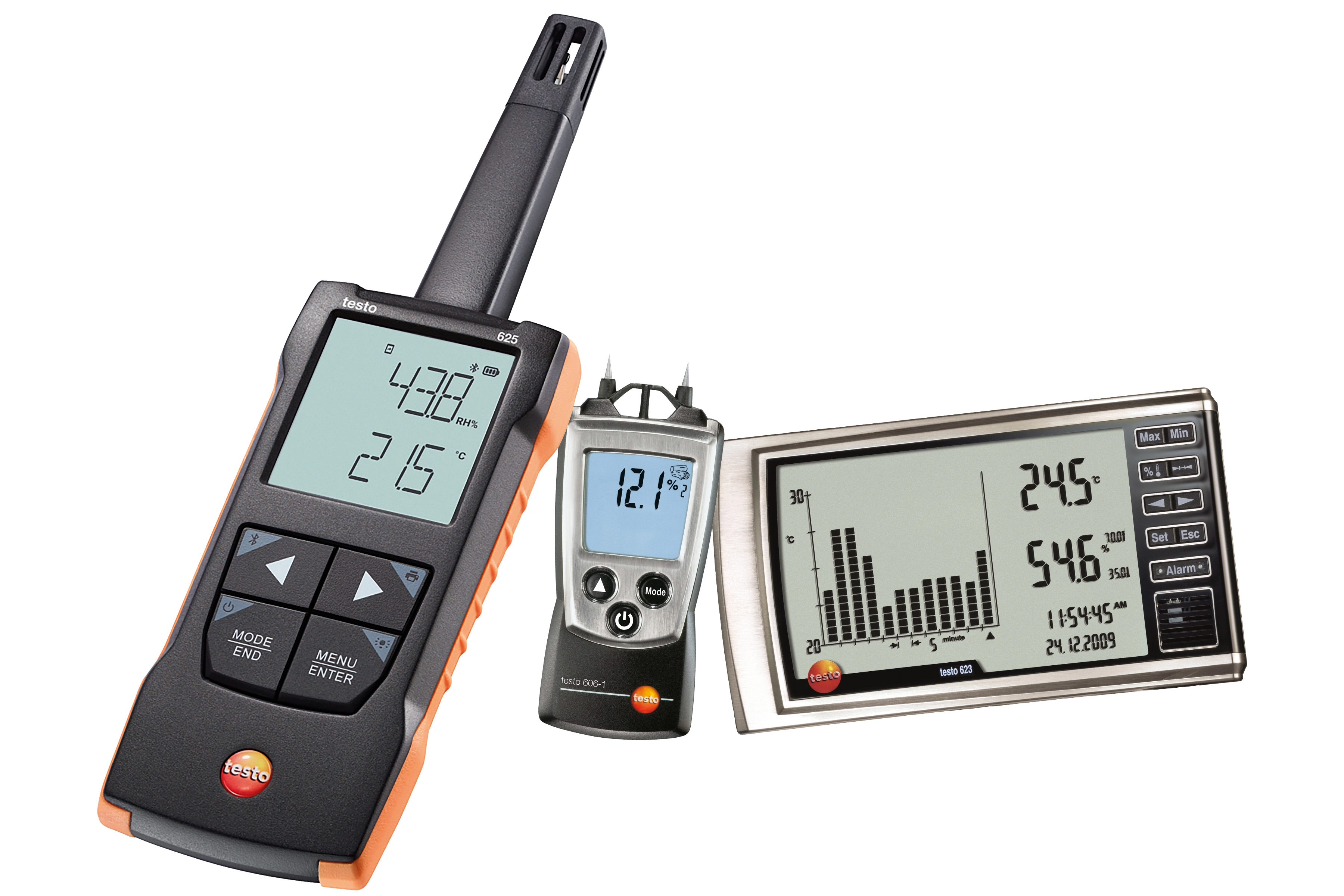The Ultimate Overview to Moisture Meters: A Comprehensive Overview and Exactly How They Can Save You Money
In the world of structure maintenance, construction, and various sectors, the relevance of precisely gauging moisture levels can not be overstated. Dampness meters act as vital devices in spotting and keeping an eye on moisture web content in products, assisting in protecting against pricey problems and guaranteeing the high quality of products. Recognizing the nuances of various sorts of moisture meters, their applications, and the prospective cost-saving benefits they supply can be a game-changer for professionals and businesses alike. Uncovering how these gadgets can not just simplify procedures however additionally add to financial savings is a journey worth beginning on.
Sorts Of Moisture Meters
Different kinds of moisture meters are offered for different applications in various markets. One typical type is the pin-type dampness meter, which measures the electric resistance in between two pins put right into a product. This type is ideal for timber, drywall, and various other building materials. Pinless moisture meters, on the other hand, usage electromagnetic sensor plates to check a larger area without causing damages to the product's surface area. These meters are optimal for quickly assessing dampness degrees in big locations such as walls and floorings.
Furthermore, there are also specialty wetness meters made for specific products like soil, grain, or hay. These meters offer exact dampness analyses tailored to the special buildings of the material being checked. Infrared dampness meters measure the thermal residential or commercial properties of a product to establish its moisture material non-invasively, making them valuable for applications where pin or pinless meters might not be suitable. Recognizing the various sorts of wetness meters available can help markets select the most ideal tool for their certain dampness dimension demands.

Benefits of Using Moisture Meters

Moreover, using moisture meters can lead to enhanced energy effectiveness. In agricultural settings, dampness meters play a crucial duty in maximizing plant yields by allowing farmers to monitor dirt dampness levels and make educated watering decisions.
Exactly How to Choose the Right Moisture Meter
Picking the ideal moisture meter entails taking into consideration crucial elements such as product compatibility, dimension variety, and calibration precision. When selecting a moisture meter, it's vital to make certain that the meter is appropriate for the particular product you will be screening. Various materials have differing electrical homes that can affect moisture analyses, so choosing a meter made for your product is essential for exact results. Furthermore, consider the measurement series of the wetness meter. Ensure that the meter can find moisture degrees within the range needed for your applications. Calibration precision is one more essential element to bear in mind (Moisture Meter). Decide for a wetness meter with dependable calibration to make sure precise and constant analyses. Some meters might need routine calibration adjustments, so recognizing the calibration procedure is very important. By very carefully examining these elements, you can select a dampness meter that satisfies your demands and gives precise dampness dimensions for your jobs.
Proper Methods for Moisture Meter Usage
To ensure exact wetness analyses and make the most of the effectiveness of a wetness meter, employing proper strategies is crucial. When utilizing a pin-type moisture meter, place the pins or probes into the product being checked until they make complete contact. By adhering to these proper strategies, users can count on their dampness meter to offer reliable moisture degrees, assisting in stopping costly damages or guaranteeing top quality in various applications.

Price Cost Savings Through Moisture Meter Applications
How can the calculated application of dampness meters lead to considerable cost financial savings across different markets? In the farming sector, dampness meters help in determining the optimal time browse this site for harvesting crops, avoiding excess or over-drying wetness that can affect the last product's high quality.

In addition, in the food handling market, wetness meters are necessary for checking item top quality and guaranteeing compliance with safety policies. By accurately measuring moisture web content in food items, suppliers can protect against spoilage, maintain quality, and lower waste, causing considerable expense savings. Overall, the strategic application of wetness meters is an important financial investment that can bring about substantial price decreases and boosted effectiveness throughout different markets.
Conclusion
In conclusion, wetness meters are beneficial tools for gauging and discovering dampness levels in different products. By making use of the best wetness meter and adhering to correct techniques, individuals can properly prevent expensive problems created by excess moisture.
Moisture meters serve as crucial devices in detecting and keeping an eye on moisture web content in materials, aiding click for source in avoiding expensive problems and making certain the quality of products. Infrared moisture meters measure the thermal properties of a material to determine its moisture content non-invasively, making them useful for applications where pin or pinless meters may not be suitable.Moisture meters provide indispensable benefits in precisely keeping track of and examining wetness degrees in diverse materials and environments. In agricultural setups, dampness meters play a critical function in enhancing crop yields by enabling farmers to monitor dirt dampness degrees and make notified irrigation choices.In verdict, dampness meters are useful devices for discovering and determining moisture levels in different products.